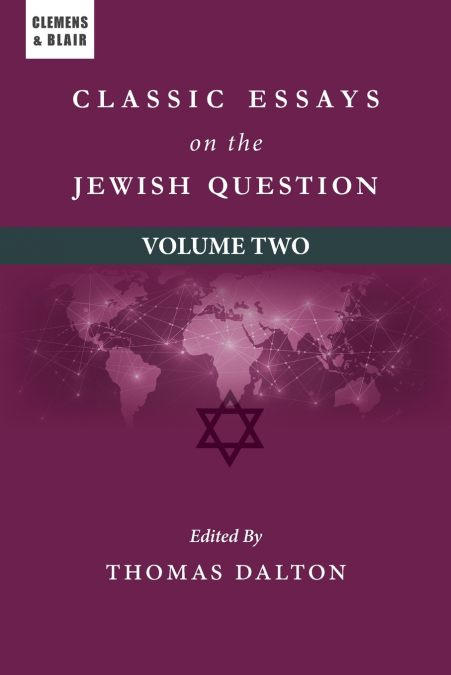
Thomas Dalton
Most people today are vaguely aware of issues with Jews in contemporary society. But generally speaking, few have any deeper awareness of the pervasive and detrimental role that they play throughout the West. And fewer still understand the history and the context of what has long been known as 'the Jewish Question'-namely: How should non-Jews deal with this most pernicious minority in their midst? The Jewish Question goes back centuries, at least to ancient Rome. The Romans were the first Western power to encounter the Judean Hebrews, to defeat them, and to scatter them throughout the world. Unfortunately, Roman victory proved temporary; with the collapse of the Empire in 395 AD, Jews and Judeo-Christianity took hold in Europe. They are yet to relinquish their grip. Throughout the Christian era, Jews steadily gained in wealth and power. By the mid-1800s, they were achieving full civil rights in European countries, and their wealth was beginning to distort the social fabric. This led many observers to begin commenting, often harshly, on the negative Jewish presence in society. Some are well known, others rather obscure. But in all cases, their words are potent and compelling.Here in Volume Two, another 26 classic essays are compiled into a single book. As in Volume One, these essays are difficult to find, even in the Internet age. When found, they are typically incomplete. And when found complete, they are often poorly translated and edited. As a result, it is nearly impossible to obtain a deep understanding of the Jewish Question over the centuries. The aim of the present book is to alleviate this shortcoming and to reawaken society to the nature and severity of the Jewish Question.